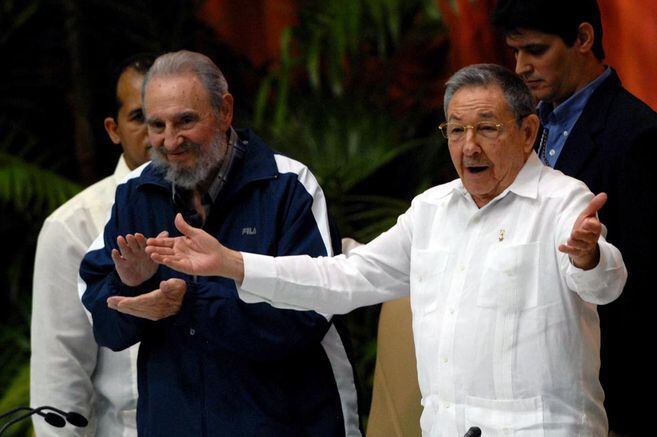
The Cuban leader will leave his country’s politics in the coming days. However, experts say it could be consulted in future decisions.
The congress of the Communist Party of Cuba will meet for four days from next Friday, marking the departure of Raúl Castro in a country shaken by the economic crisis and the recent arrival of the mobile internet. These are five things you need to know about this important event in the political life of the country.
Raúl leaves
Three years after leaving the presidency, Raúl Castro, 89, will relinquish the top post from first-party secretary to president, Miguel Díaz-Canel, 60.
You can read: The keys to the withdrawal of pensions that Chile is debating at the height of the pandemic
Your plans? Retire to “take care (of his) grandchildren” and read books, just like the rest of the historical generation, as he jokingly suggested, during the organization’s last congress in 2016. This will give Díaz-Canel more leeway, as he will have “the party apparatus in his hands,” according to former diplomat Carlos Alzugaray.
But “Raúl was there”, “it can be passed to a model similar to the one that existed in China when Deng Xiaoping had no position, but (…) everything had to be consulted with him. the last word “.
The free-falling economy
The country is going through its worst economic crisis in 30 years. In 2020, GDP fell 11%, and the coronavirus pandemic paralyzed its economic engine, tourism.
Across the country, Cubans spend long hours in front of semi-empty markets to stock up. “The Eighth Congress should focus on setting credible goals for reform,” says economist Ricardo Torres of the University of Havana. And he stresses that “the transformation of the property system must be the main goal,” to accelerate the opening of the economy to the private sector.
The internet revolution
This is the big change in recent years in Cuba. The arrival of mobile internet (3G) at the end of 2018 put an end to this impression of isolation felt by the inhabitants of the island, until then one of the least connected in the world.
The Internet freed the word, allowing Cubans to explain their daily lives, but also to express their demands, denounce cases of repression and even organize demonstrations in the street, something unheard of in Cuba.
As part of its program, the congress has proposed that the party be more effective in the face of “political-ideological subversion” on social media. “The Internet has been a facilitator of the growth of civil society,” says Ted Henken, an American sociologist and author of the forthcoming book “The Digital Revolution in Cuba.” It has opened “very important holes in the government monopoly,” he notes.
The unknown Biden
The election of Joe Biden as President of the United States raised great hopes in Cuba. After four years of heavy sanctions from Donald Trump, a president arrived who promised in the campaign to back down, at least in part.
But three months after his inauguration, he has not said a word about the island and his administration remains firm on human rights issues.
Joan Gonzalez, his adviser for Latin America on the National Security Council, has just stated that “Biden is not Barack Obama in politics toward Cuba.” “The political moment has changed significantly, the political space has been closed a lot, because the Cuban government has not responded in any way,” he added, denouncing the “oppression against Cubans.”
You can read: Facebook’s selective justice that threatens poor countries
For political analyst Harold Cárdenas, “there is a group of creeps on both shores (in Cuba and Miami) that is trying to prevent that from happening (an approach).” Cárdenas refers to “the most radical sector of the Cuban right” exiled in Miami and the “most radical of the Communist Party.” Both, he adds, “do not want a (relationship) normalization or want that normalization to be on their terms.”
The hope of a vaccine
The detection of the first cases of coronavirus in Cuba, in March 2020, was an opportunity to demonstrate the strengths of a model that has given great relevance to health. According to the World Health Organization (WHO), the country has 82 doctors per 10,000 inhabitants (compared to 32 in France and 26 in the United States).
The island, with 11.2 million inhabitants, has recorded only 88,445 cases and 9 deaths. His other bet to develop his own vaccine, also seems to be going well, with two candidates in phase 3 and final clinical trials.
Congress could be the occasion to announce the start of a vaccination campaign, scheduled for June. Cuba would then be “the first country in Latin America and the Caribbean to produce its own vaccine against the virus,” said WHO’s representative in the country, José Moya.